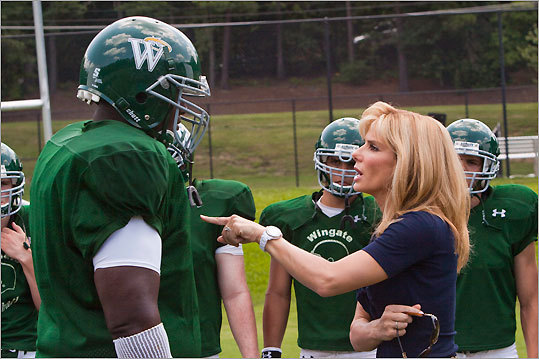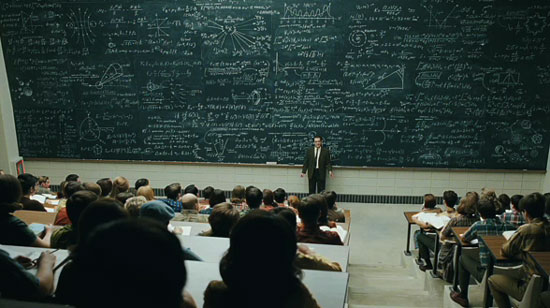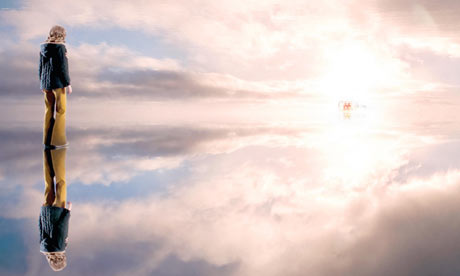
Here's a movie with a boastful title that truly lives up to its name! Adapted to our wit's end by film nerd Wes Anderson and fellow director Noah Baumbach from a Roald Dahl children's story, FANTASTIC MR. FOX is such a joyous movie viewing experience that my face hurt when its all-too-brief running time came to an end. I was smiling that much.
Wes Anderson is a well-loved director in film snob circles, but I have to confess that, until now, I've always appreciated and respected him far more than I've ever enjoyed him. His filmscapes are so meticulously created down to the finest detail that they have felt vacuum-sealed, devoid of air. His quirky characters have all circulated in worlds of white, Holden Caulfield-like privilege: boarding schools, families detached by their own wealth, pasttimes of the rich. I have always had a hard time getting into these stories, and yet I've always noticed a genius comic timing and a batch of discussion-worthy, quirky and insecure characters absent from the majority of films in need of them.
FANTASTIC MR. FOX has all of the comic timing and quirkiness, but this time, Anderson focus his anal-retentive eye for details on the art of stop motion, to the point where he slows down the film's frames-per-second to specifically draw attention to the medium itself. The result is, frankly, pure genius. Tempered color palates and visual symbolisms, sly dialogue, symbolic mise-en-scene.
But this fox is truly a sly one. It is, at times, silly to the point of being giddy. It will remind audience, I'd suspect, of a Wallace and Gromit cartoon, with the misadventures of animals on display for humans to enjoy. But Anderson takes even further the notion that we are truly spying on the animals' world. These are not Disney animals, made to personify human character traits. Rather, they are busy and fussy creatures who are irritated by us humans, and they are no longer willing to sit by idly without doing something about it.
For those who don't know the basic story, Mr. Fox used to pull off some sneaky heists in his day but is now a domesticated father and husband who welcomes his nephew for an extended vision. But - as the film reminds us more than once - he is still a wild animal, and his urges have never left him. One more heist, he insists. The classic heist film convention...this is my last one. So Fox rounds up a few helpers but unloads a ridiculous plan. The heist will be three-pronged, seeking revenge on not one but three local farmers who have in some way or another terrorized the local animals.
Played by George Clooney, who does little to affect a different cadence or sound than the George Clooney of any other film he's in, is perfectly dry here, resulting in gut-splitting hilarity in moments such as when Anderson and Baumbach replace the typical foul language of adults with the word "cuss." The joke never got old. Clooney inserts "cuss" in every part of a sentence just as we creatively use the f-word today.
The rest of the vocal cast is equally great, with Meryl Streep (what a year for her!) as Mrs. Fox, Jason Schwartzman (an Anderson staple) as their son, Ash, and Bill Murray (another Anderson favorite) as a badger.
The script is Award-worthy. It is ridiculously clever to a fault, pure joy from start to finish. I can't type enough superlatives about it. Nor can I do justice in words to compliment what was clearly a daunting feat of artistic direction. As with all Anderson creations, the images in the film don't exist simply to tell the story. They are pictures to be mined for information on repeat viewings, rich with symbolism and cultural psychology.
I would have to say that FANTASTIC MR. FOX was not only my favorite animated film of the year, but perhaps one of my favorite films, period. It has made me want to dive back into the Anderson filmography and, perhaps, give some of his stuffy, formalist comedies another shot.
Were you planning to skip this one? The cuss you are! See it NOW. You will fall in love, too.
4.0 out of 4











